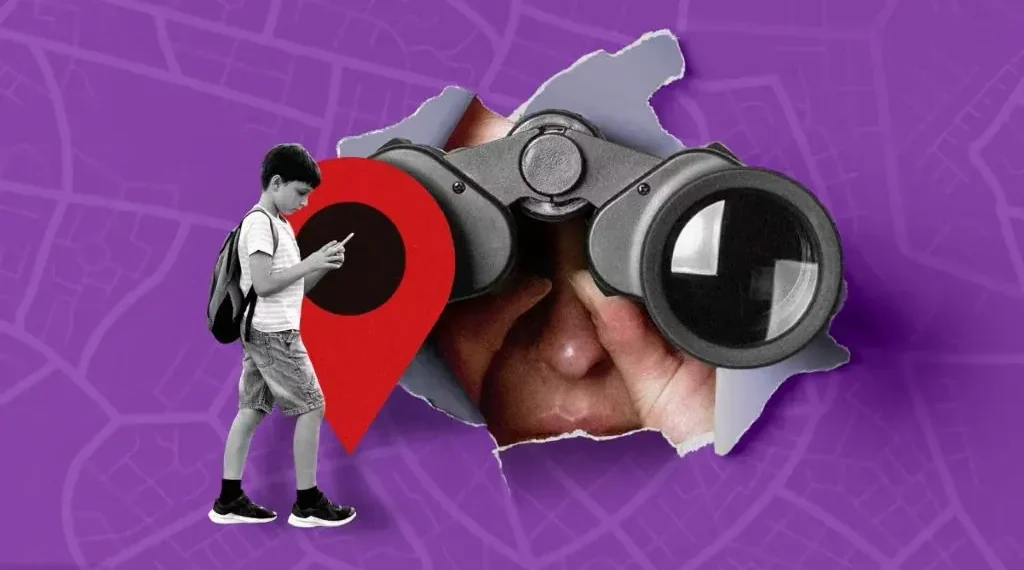Millions of parents now have the ability to follow their children’s movements through location-sharing apps — a comfort for some and a source of anxiety for others. As families adapt to an era of constant digital connection, experts warn that tracking may blur the boundaries between care and control, especially as young adults strive for independence.
The Rise of Digital Tracking in Modern Families
On a recent road trip, a mother watched her college-aged twin sons travel down Interstate 85 toward Florida — not through a rearview mirror, but through the pulsing dots of a tracking app on her phone. She could see the route unfold in real time, from Georgia’s Coweta County to the beaches of Panama City, offering both reassurance and a reminder of how parenting has evolved in the smartphone era.
According to a 2024 Pew Research Center report, one in four parents of young adults use GPS-based apps to track their children’s locations. Many do so with consent and under the premise of safety. For some parents, like Christy Keys, whose daughter attends the University of Tennessee, tracking offers peace of mind. “We have never had to question her whereabouts,” Keys said, “and unless her location looks suspicious, we don’t.”
Others view tracking as a mutual act of care. “He wants me to know where he is,” said Kim Asher, whose son studies at George Washington University. For families living in large cities or during uncertain times, the reassurance can feel invaluable.
How the Pandemic Strengthened the Digital Connection
Experts suggest that this digital closeness intensified after the COVID-19 pandemic, which redefined how families stayed in touch. Sarah Gallagher Trombley, founder of Digital Mom Media and a former Snapchat executive, believes technology became an emotional bridge during a period of isolation.
“It’s not all bad,” Trombley told CNN. “For some young adults, having parents still looking out for them feels comforting, especially during those first disorienting months at college.”
Parents in earlier generations relied on faith and fixed routines. One mother recalled lying awake in the 1990s, waiting for car headlights to signal that her teenage child was home. Today, smartphones replace those headlights, but the emotional stakes remain the same — perhaps even amplified by instant access to information.
Peace of Mind or Parental Anxiety?
For many, location tracking brings reassurance. Parents can confirm that their children arrived safely at their destinations or are not in danger. Yet that same access can sometimes lead to unnecessary panic.
One father recounted how a tracking app showed his daughter’s phone parked in a deserted lot at 1 a.m. Alarmed, he drove across town only to find her fast asleep at her sorority house. Another parent described a similar scare when GPS data placed his son “in the middle of the highway” — a simple glitch caused by signal distortion near dorm buildings.
Such false alarms highlight the imperfect nature of digital monitoring. “Parents can end up punishing themselves by tracking their kids,” one father admitted. Despite its benefits, tracking can fuel worry rather than resolve it.
The Psychological Cost of Over-Monitoring
Parental tracking may also affect long-term trust. Gallagher Trombley and other experts caution that overreliance on digital surveillance can delay a young adult’s ability to make independent decisions. “Have we raised kids in such a way that it’s harder for them to truly be independent?” she asked. “I worry about the failure to launch.”
Technology may give parents a sense of safety, but it can also undermine self-reliance and mutual trust — two essentials of adulthood.
Establishing and Respecting Boundaries
Tracy Foster, cofounder of the nonprofit Screen Sanity, believes tracking can coexist with healthy relationships if clear boundaries are set. She compares it to learning how to drive: parents start in control, guide from the passenger seat, and eventually step out of the car.
“Ultimately, they’re driving by themselves, and you’re not even in the car,” Foster explained. “That’s how technology should work — parents need to realize they’re no longer behind the wheel.”
In one case, a 29-year-old adult finally disabled her mother’s tracking app, prompting anger and confusion. Foster said it illustrated how some parents struggle to accept their children’s independence after years of digital monitoring.
When Tracking Becomes Mutual
Interestingly, some young adults choose to keep location sharing active — not for their parents’ reassurance, but for their own peace of mind. As members of the so-called “sandwich generation,” many parents are now caring for both children and aging parents.
Jennifer Rowland from New Hampshire, for instance, found herself tracking her daughter at university and her widowed father in North Carolina. When her father’s location suddenly stopped updating, she discovered he had been hospitalized for heat exhaustion. “It brought about a whole different experience of using a GPS app,” she said.
These moments reveal how digital tracking has evolved beyond control — becoming a tool of mutual care within multigenerational families.
Letting Go in the Age of Connection
Over time, most parents realize that constant monitoring does not necessarily make their children safer. Instead, it offers a symbolic thread of connection — a reminder of presence rather than authority.
One father described receiving a “risky driving” alert that turned out to be his son joyriding on a Jet Ski. His panic quickly transformed into pride and laughter. “He must have been having the time of his life,” he said. “I wasn’t there, but I still felt close to him.”
That story captures a truth about modern parenting: even as technology reshapes family life, emotional connection remains the foundation. For many parents, learning when not to look at the app may be the final step in letting go.
This article was rewritten by JournosNews.com based on verified reporting from trusted sources. The content has been independently reviewed, fact-checked, and edited for accuracy, neutrality, tone, and global readability in accordance with Google News and AdSense standards.
All opinions, quotes, or statements from contributors, experts, or sourced organizations do not necessarily reflect the views of JournosNews.com. JournosNews.com maintains full editorial independence from any external funders, sponsors, or organizations.
Stay informed with JournosNews.com — your trusted source for verified global reporting and in-depth analysis. Follow us on Google News, BlueSky, and X for real-time updates.














